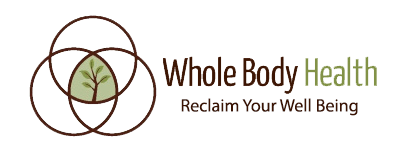Even people that don’t normally deal with anxiety issues may be feeling more than a little anxious right now. Weeks of social distancing and continuous news coverage have us feeling a little isolated and vulnerable, wondering and worrying about how long this new normal will last and how we and our families will navigate a world that seems a little scarier once the stay-home restrictions are lifted.
Now, more than ever, it’s important to take intentional steps to safeguard your mental health to combat the inevitable feelings of listlessness, restlessness, and irritability you may be feeling. Doing so will not only make social distancing easier, it will have positive effects on your physical health as well.
Stay Connected
Research shows that people with strong social connections live longer, have stronger immune systems and lower risks of anxiety and depression than those who don’t, so it’s important to maintain those connections during social distancing. Social media platforms are great for seeing what everyone is up to and how they’re dealing with their own extended time at home, but just like before, if overused, they can invite negative feelings and harmful comparisons about how you’re using (or not using) your time at home vs. those who seem happier or more productive. Social media can also flood us with non-stop negative news that only adds to anxiety.
Hearing the voices, or better yet, seeing the faces of people we love and miss can be much more therapeutic. Texting, phone calls, FaceTime, Zoom & Discord, among others, offer connectivity on varying levels and are a great and simple way to check in. Seeing (and being seen) may not only help you feel less isolated, but gift others with that same sense of connectedness.
Stick to Routine
It might have been tempting at first to switch back and forth between daytime and nighttime pajamas, assuming there’s no video conferencing in your day, but creating and sticking to at least a fairly normal routine can be helpful in supporting your mental and physical health.
Even if you have no pressing matters on they day’s schedule, try to keep regular sleep and wake times, even if they’re not your usual ones, as well as normal meal times, to avoid circadian disruptions and keep immunity strong. When circadian rhythm gets out of whack, all of the body systems can be negatively impacted.
You may find yourself wanting to sleep at odd times throughout the day and not being able to sleep when you should. Disrupted sleeping patterns can result in lowered immunity, hormone imbalances, digestion difficulties, cognitive impairment, and low mood, making it harder to fight off feelings of depression and anxiety.
Avoid activities that can affect the quality of your sleep, such as eating too late in the day or too much blue or bright light exposure close to bedtime.
Keep Moving
Exercise is just as important now as ever since it not only contributes to better overall health but can relieve tension and help elevate and stabilize your mood. While gyms and fitness studios may be closed, many are offering YouTube or livestream workouts — some free of charge — to get keep you on your program during social distancing. Zoom workouts and livestreams have the added benefit of interaction with fellow exercisers offering both contact and accountability.
And don’t hesitate to take your workout outdoors when possible. The importance of Vitamin D for both physical and mental health should not be underestimated. Sunshine and fresh air are both great natural mood lifters, and walking and hiking in scenic spots are proven to clear the mind and reduce rumination. Take advantage of outdoor exercise opportunities before the temps get too high.
Set Goals
Setting goals, no matter how big or small, helps you stay focused on something other than the current health crisis. Whether it’s decluttering a mess, learning a new skill through an online tutorial or class, weeding the garden or reading a book, actually doing what you plan will give you a mood-boosting sense of accomplishment. Aim for some short term, quickly completed tasks like writing a letter or organizing your desk, as well as some that might take a little longer like digitizing old photos or cleaning out a closet. A particularly good purpose-driven activity is to check on others who may also be feeling isolated. Leave an encouraging note on a neighbor’s door, or send a stack of them to a nursing home or hospital where visitors have been restricted. Making others feel better will boost your spirits as well.
